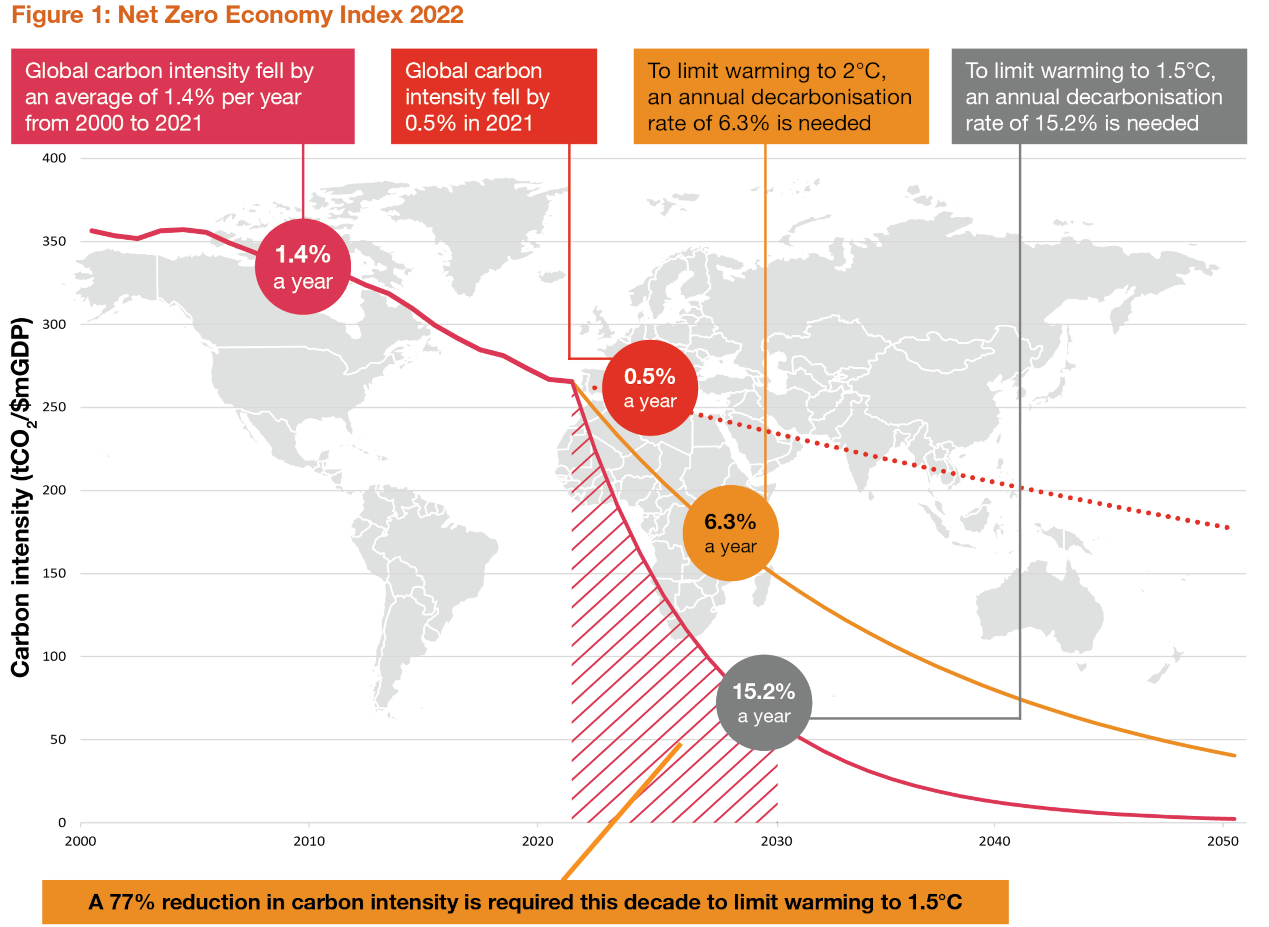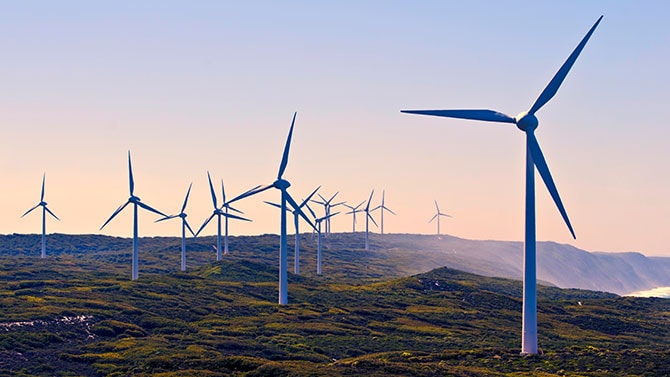Methodology
The Net Zero Economy Index tracks the decarbonisation of energy-related CO2 emissions worldwide.
The analysis is underpinned by bp's Statistical Review of World Energy, which reflects energy consumption per fuel type per country and CO2 emissions based on the consumption of oil, gas and coal.
Global carbon budgets refer to the global estimated budget of fossil fuel emissions taken from the IPCC Special Report on Global Warming of 1.5°C. A series of assumptions underpin these carbon budgets, including the likelihood and uncertainties of staying within the temperature limits, and the use of carbon dioxide removal (CDR) technologies.
AFOLU (Agriculture, Forestry and Other Land Use) emissions and non-CO2 emissions are excluded from this analysis. No carbon sequestration is accounted for in the Net Zero Economy Index analysis. As a result, this data cannot be compared directly with national emissions inventories.
GDP is measured on a purchasing power parity (PPP) basis.
Our data sources include: bp, IEA, World Bank, OECD, PwC
G7 comprises: Canada, France, Germany, Italy, Japan, the United Kingdom, and the United States
E7 comprises: Brazil, China, India, Indonesia, Mexico, Russia, and Turkey
G20 comprises: G7 countries, E7 countries, Argentina, Australia, Korea, Saudi Arabia, South Africa, and the EU.



















